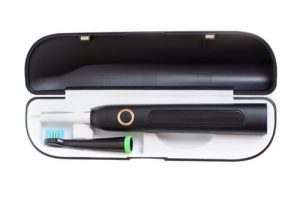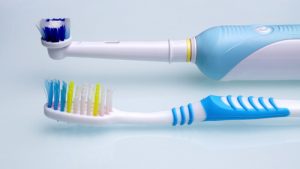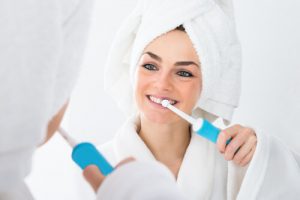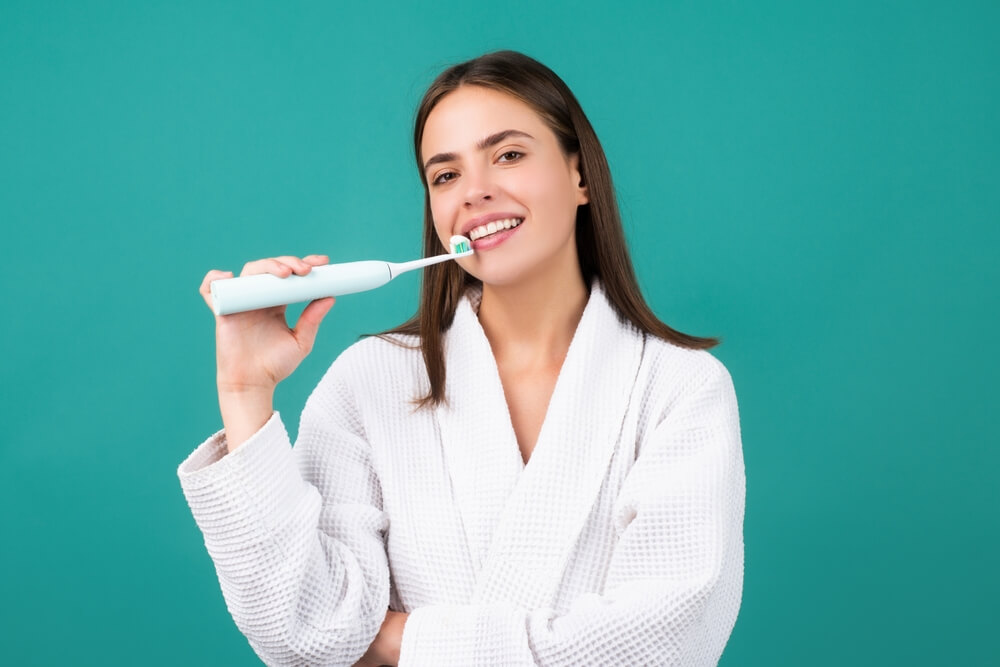The humble toothbrush has experienced a remarkable evolution since its inception, tracing back to ancient civilisations that used twigs to clean their teeth. The transition to the modern toothbrush began around the 17th century. Still, a significant leap occurred with the advent of the electric toothbrush in the 20th century, offering a new realm of oral care possibilities. The central question is, are electric toothbrushes better than their manual counterparts? This ongoing debate touches on various factors, including cleaning efficacy, ease of use, and cost efficiency. The prime objective of both electric and manual toothbrushes remains the upkeep of oral health, a critical aspect of our overall well-being. Oral health is the gateway to general health, making the choice of a toothbrush more than a mere personal preference. A toothbrush prevents tooth decay and gum disease by efficiently removing plaque and bacteria. Electric toothbrushes, oscillating heads and built-in timers promise a more thorough cleaning with less effort, potentially encouraging better brushing habits.
On the other hand, manual toothbrushes have been a trusted tool for centuries, proving effective in maintaining oral hygiene when used correctly. This analysis aims to delve deeper into the debate and explore the advantages and disadvantages of using an electric toothbrush over a manual one, considering various aspects to provide a well-informed perspective. By exploring effectiveness in plaque removal, cost analysis, environmental impact, and additional features like pressure sensors and variable speeds, we aim to provide a comprehensive understanding to help individuals make an informed decision in their oral care routine.
Effectiveness in Cleaning
Oral health is a cornerstone of overall wellness, and the battle against plaque is at its core. Plaque, a sticky film of bacteria, continually forms on teeth and gums, contributing to tooth decay and gum disease. A pertinent question to consider in this battle is, are electric toothbrushes better at safeguarding one’s oral haven?

Any toothbrush aims to remove plaque effectively. Manual toothbrushes have been the traditional choice, but with electric toothbrushes, many find the latter more adept at keeping teeth sparkling clean. Electric toothbrushes, oscillating and pulsating actions reach areas often missed with a manual brush. The bristles’ motion helps to dislodge plaque even from the trickier regions of the mouth, offering a thorough cleaning.
Particularly, the oscillatory motion of electric toothbrushes can be a game-changer. Unlike the manual technique, the brisk movement of an electric toothbrush head ensures that the brushing process is more effective and less tiresome. Combined with a pulsating action, the oscillating heads engage with the teeth and gums to break down plaque more effectively.
Numerous studies have shone a light on this topic. For instance, a study published in the Journal of Clinical Periodontology found electric toothbrushes significantly outperformed manual toothbrushes in reducing plaque and preventing gum disease. The correct brushing technique is easier to achieve with electric toothbrushes, as many electric toothbrushes come with built-in
pressure sensors and timers to ensure one is brushing their teeth properly and for an adequate duration.
Electric toothbrushes are designed with various features to enhance the cleaning experience. For instance, some have pressure sensors to alert when too much pressure is applied, which could lead to gum recession or other dental issues. Others come with variable speeds to cater to sensitive teeth or tough stains.
The debate on electric toothbrushes vs manual toothbrushes towards effective cleaning often circles back to personal preference and individual brushing technique. Yet, the tilt favours electric toothbrushes when removing more plaque and promoting good oral hygiene. In an era where technology aims to make life easier and healthier, it seems logical to lean towards an electric toothbrush for an upgraded brushing experience.
Ease of Use and Accessibility
In the quest for exceptional oral health, the consideration between electric and manual toothbrushes arises often. Are electric toothbrushes better at catering to different age groups and those with motor disabilities? The landscape of oral care reveals a nuanced answer.
Electric toothbrushes herald a breeze of ease for many. With just the press of a button, the electric toothbrush head oscillates or pulsates, requiring less effort and ensuring a consistent cleaning rhythm. This is a godsend for individuals with limited mobility or motor disabilities, as the toothbrush does most of the work. The young and the elderly can find using an electric toothbrush less of a chore, making brushing their teeth an engaging, less daunting task. Moreover, many electric toothbrushes have built-in timers and pressure sensors, fostering a correct brushing technique.
On the flip side, manual toothbrushes demand a more hands-on approach. The manual technique requires a correct brushing motion to effectively remove plaque, which might be challenging for some, yet they offer a simplicity that’s unmatched. They are readily available at nearly every supermarket or pharmacy and require no batteries or charging, making them a go-to choice for many.
Cost often plays a pivotal role in choosing electric and manual toothbrushes. The initial investment in an electric toothbrush is higher, encompassing the cost of the unit and replacement heads. However, the long-term benefits might offset the initial cost, including potentially fewer dental check-ups and a decreased likelihood of gum disease and tooth decay. On the other hand, manual toothbrushes are cost-effective from the onset yet may offer a different level of plaque removal efficiency over time.
Moreover, the accessibility to various brush heads for electric toothbrushes, ranging from those designed for sensitive teeth to oscillating heads adept at removing more plaque, provides a tailored brushing experience.
Whether the tech-savvy electric or the humble manual toothbrush, the aim remains to champion good oral hygiene. Both have merits, and the choice often refers to personal preference, lifestyle, and individual oral care needs. Ultimately, a consistent and correct brushing technique and regular dental check-ups pave the path to a happy, healthy smile.
Environmental Impact

When choosing a toothbrush, the environment might not be the first consideration to come to mind. However, choosing electric and manual toothbrushes has implications beyond personal oral health. Analysing the materials used, disposal strategies, and the carbon footprint associated with manufacturing these toothbrushes unveils the broader picture of their environmental impact.
Unveiling the Environmental Footprint: A Dive into Material Composition of Electric and Manual Toothbrushes
Electric toothbrushes, with their complex parts, including batteries and electric motors, entail using a broader range of materials than their manual counterparts. The electric toothbrush head is replaceable, but the handle and the electronic components are made from a mix of plastic, metal, and sometimes even rubber. On the other hand, manual toothbrushes are predominantly crafted from plastic, though eco-friendly versions made from bamboo or other biodegradable materials have gained traction.
Disposal Dilemmas: The Recycling and Landfill Journey of Your Toothbrush
Disposal and recycling options for toothbrushes are relatively nascent. The plastic bodies of manual toothbrushes find their way to landfills, where they take centuries to decompose. The scenario with electric toothbrushes is even grimmer. Although the brush heads are replaceable, the handle housing the electronic components presents challenges in recycling, often ending up as electronic waste. Some brands have initiated recycling programs, yet they are far from commonplace.
The carbon footprint of manufacturing these toothbrushes reveals a significant disparity. The production of electric toothbrushes consumes more energy due to the electronic components involved. Moreover, the transportation of electric toothbrushes, given their weight and the necessity for more protective packaging, exacerbates their carbon emissions. Manual toothbrushes, being lighter and less complex, involve lower energy consumption in manufacturing and transportation.
Beyond the Bristles: How Your Toothbrush Choice Impacts the Planet
The dialogue on whether electric or manual toothbrushes are better transcends personal preference and oral health benefits. It extends to an environmental discourse that requires a conscientious examination of material use, disposal practices, and carbon emissions. With a paradigm shift towards more sustainable living, reflecting on the environmental footprint of our oral hygiene practices is a small yet significant step towards a greener planet.
Conclusion

In wrapping up, we’ve traversed the electric and manual toothbrush landscape, discerning the tailored features and benefits they usher. From pressure sensor timers to various brushing modes, electric toothbrushes are a beacon of modern-day oral hygiene, promoting better brushing habits. On the flip side, manual toothbrushes provide a simple, cost-effective solution to maintaining good oral health.
Personalised advice hinges on individual needs and preferences. While electric toothbrushes are designed for precise, effortlessly clean, manual ones resonate with simplicity and control. It’s imperative to weigh the features against your preferences, brushing technique, and budget.
Consider your unique circumstances and oral health priorities as you ponder the electric or manual toothbrush conundrum. Your journey towards impeccable oral hygiene is personal, yet a paramount choice awaits.
We invite you to extend this dental discourse at Beyond Infinity Dental, where a sea of professional advice and top-notch dental solutions await. Whether electric or manual, find what suits you best and elevate your oral care regimen to absolute assurance and comfort. Your path to superior oral health could begin with a visit to Beyond Infinity Dental. Call us on (02) 8806 3799. Discover, engage, and transform your oral health narrative.
References:
https://www.consumerreports.org/health/toothbrushes/electric-toothbrush-or-manual-a3193343159/










